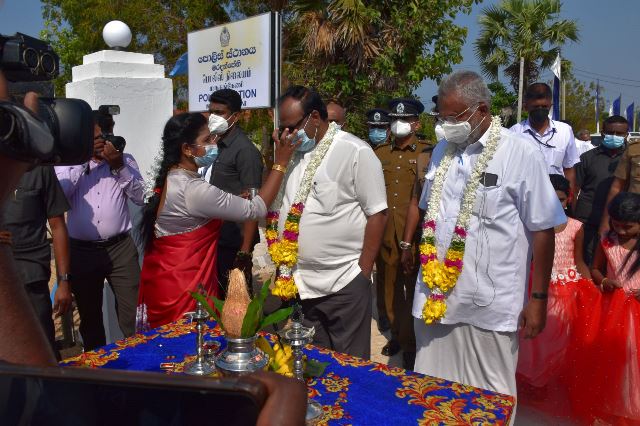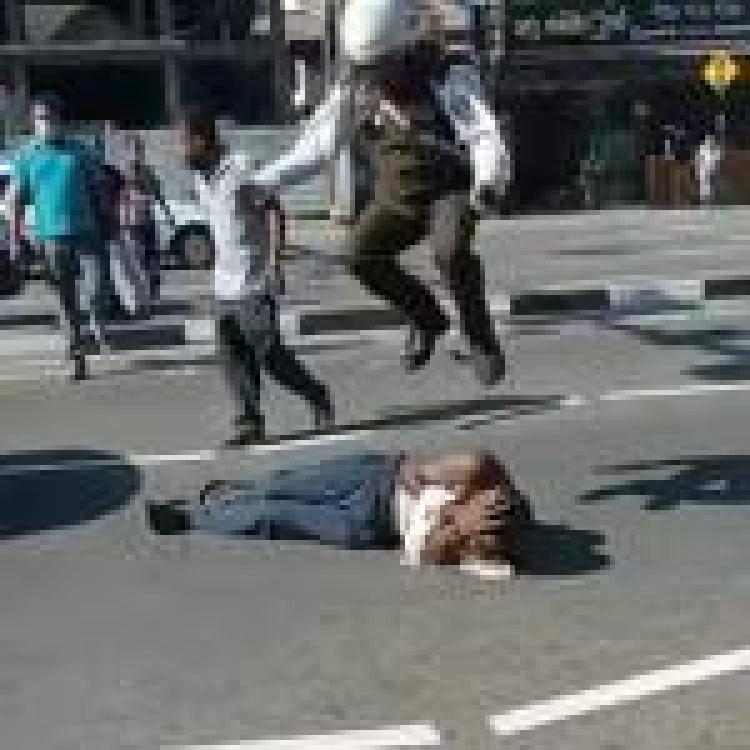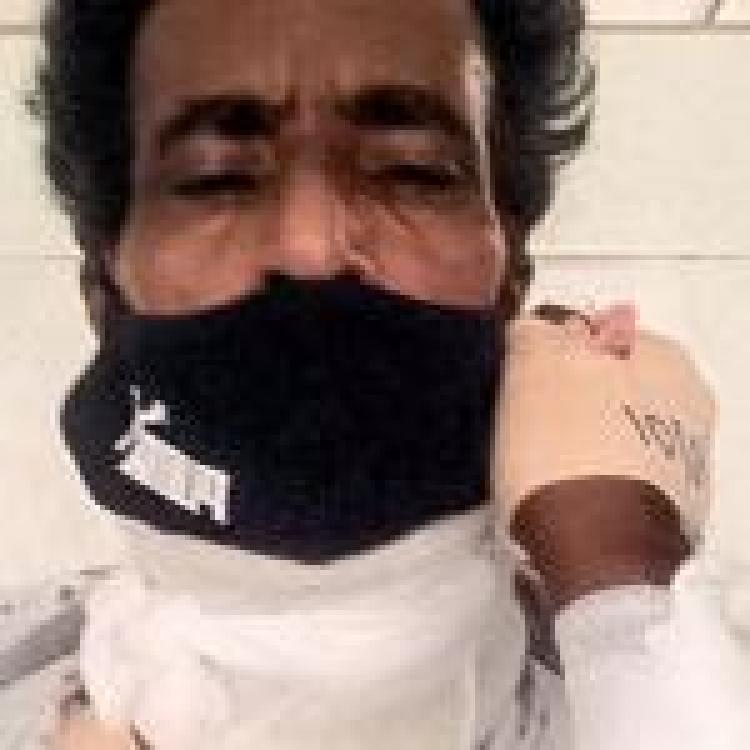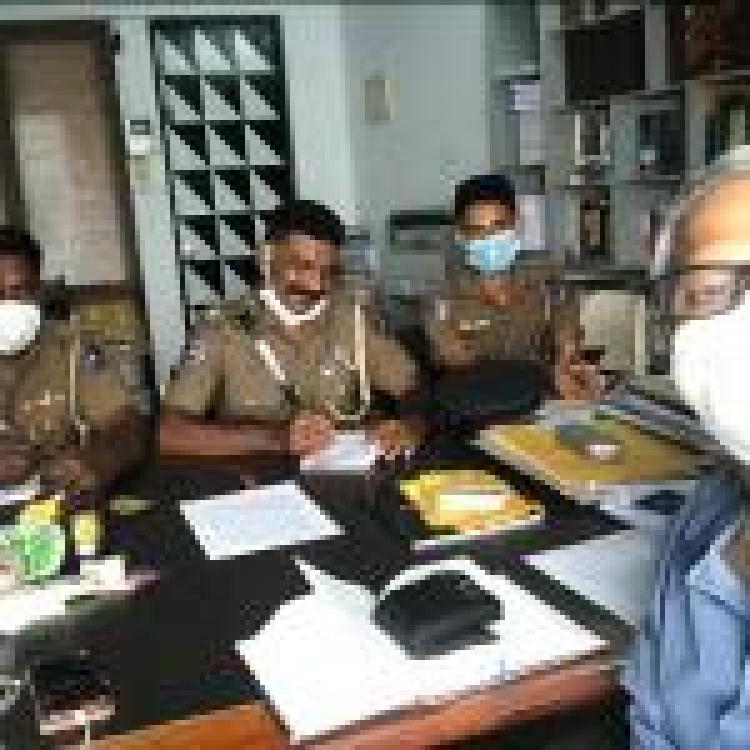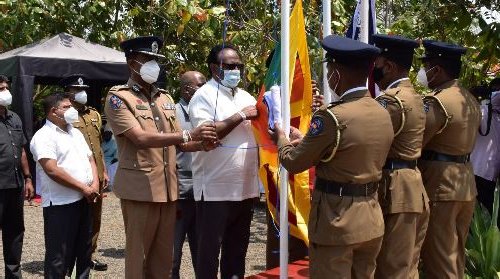
Sarath Weerasekara (centre) at the inauguration of Iyankankulam police station, Mullaitivu
Sri Lanka's Minister of Public Security, Sarath Weerasekara attended the inauguration of a police station in Mullaitivu where he announced that 190 new police stations will be built in Sri Lanka, adding to the existing 494 police stations.
Maradankeni and Iyankkankulam located in the North were selected to build the first two police stations under the government programme, with the construction of Iyankankulam police station in Mullaitivu being completed on the 2 April. Weerasekara noted that the construction of the police stations was a measure taken to “create a society free of fear and suspicion for the people of this country”.
He was joined by paramilitary leader and Sri Lankan minister Douglas Devananda, who also stands accused of human rights abuses.
The North-East continues to remain one of the most militarised regions in the world. 14 out of the 21 Sri Lankan army divisions are based in the Northern province alone and the defence budget has been growing despite the armed conflict ending more than a decade ago.
Earlier this year accused war criminal Gotabaya Rajapaksa announced he would reopen 50 military and STF camps in the eastern province. As the militarisation of the state intensifies the Tamil civil society space has come under constant attack from state forces, with numerous accounts of harassment, surveillance and arbitrary detention being documented. In recent weeks a police officer was recorded throwing a Tamil lorry driver to the ground before proceeding to jump on his body. Police forces stationed in the North-East are overwhelmingly Sinhalese and are linked to the violent Sri Lankan military apparatus which operates across the occupied Tamil homeland. Following the Pottuvil to Polikandy march for justice where an estimated 50,000 people attended from across the North-East, police officers ramped up questioning of both Tamil Civil Society members and Tamil Parliamentarians who attended the march.
Read more at the ColomboPage here and from the Sri Lankan police here.

